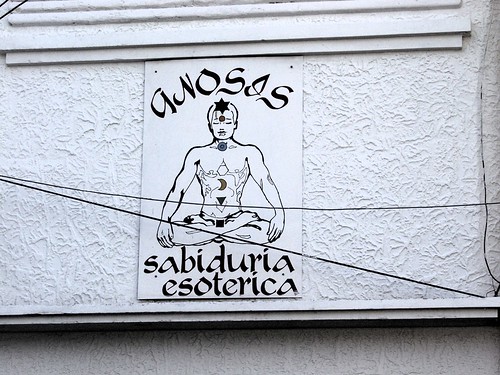"Aren’t they
all Catholic?”
People sometimes ask
this question about Lutheran mission work in Venezuela or, perhaps,
Latin America in general. The thought is that, since we Lutherans
regard Roman Catholics as Christians at least in some sense, and
since most, if not all, Venezuelans identify as Catholics, should we
not concentrate our evangelistic efforts on those parts of the world
where there is not a Christian majority?
A short answer to
the first question is no, they’re not all Catholic. Not any more.
Fifty years ago,
when I prepared a report on Venezuela for my sixth-grade teacher,
nine out of ten Venezuelans would have identified as Roman Catholics.
Even in those days, however, less than 10 percent attended Mass even
once a month. Even today the Catholicism we usually deal with here is
a form of cultural Christianity. That means Christianity, or a
certain form of it, has had an impact on the history and way of life
of a tribe or nation. Most people at least pay lip service to its
teachings and values, if only out of loyalty to family and country.
But do they faithfully apply these teachings and values to their
daily lives? Well, maybe, maybe not. Do they know Jesus Christ as
Lord and Savior? Again, an open question.
But times are
changing in Venezuela. According to the most
recent census figures, 71 percent identify as Roman Catholics and
19
percent as Protestants. The word, Protestant, is not used as much
as “evangélico” or evangelical. Either Protestant or evangelical
is a catch-all term that takes in quite a variety of beliefs. Most
evangélicos are neo-Pentecostals, which has been the
fastest-growing religious group in Latin America for some time.
Some of these belong to the Oneness
Pentecostal movement, which denies the doctrine of the Trinity.
Evangélico may even mean Jehovah’s Witnesses, Mormons and
Seventh-Day Adventists, all of which are active in our area (there is
a Kingdom Hall in La Caramuca).
Besides the
permutations of Christianity, there are cults of non-Christian
origin. Some are homegrown, like the
cult of Maria Lionza. Santeria began in Cuba, but has
flourished in Venezuela in recent years. There is an
Islamic presence in Venezuela, as well as various types of New
Agery.
So Venezuela is not
a contentedly Catholic country. Even if it were, as Lutherans we
would consider it part of our confession to proclaim the Word of God
in all of its purity here. The Roman Catholic Church may not be as
far off base as some of the other religious options that face
Venezuelans, but the fundamental issues of faith, grace and church
authority that fired the debates of the Reformation still burn today. Not only that, but there are many more winds of false doctrine in our world. Our job as missionaries is to anchor weak Christians in the truth of the Scriptures, that they may be able to discern sound and unsound doctrine. To this end, the unity of all believers in heaven, even if such unity cannot be achieved on earth.
What’s more, those Venezuelans who believe that the Lutheran Confessions are the most faithful exposition of the apostolic faith face a practical problem: Throughout most of Venezuela, there are no congregations that subscribe to the Book of Concord. So if they have to move to find work, they may not find a confessional Lutheran congregation anywhere near their new home.
So, the answer to the second question is that even in countries that have a nominal Christian majority, there is much work to be done.
What’s more, those Venezuelans who believe that the Lutheran Confessions are the most faithful exposition of the apostolic faith face a practical problem: Throughout most of Venezuela, there are no congregations that subscribe to the Book of Concord. So if they have to move to find work, they may not find a confessional Lutheran congregation anywhere near their new home.
So, the answer to the second question is that even in countries that have a nominal Christian majority, there is much work to be done.
Solar panels
on-line
On July 22, we
suffered with most of the rest of the country through the third
nationwide blackout since March. We continue to experience local
blackouts of varying lengths on a daily basis. On Sunday, August 4,
we remembered in our congregational prayers the victims of the El
Paso, Texas, shooting. However, because we were in the middle of an
18-hour power outage, we did not find out about the Dayton, Ohio,
shooting, until after our morning service.
However, thanks to
the generous financial support of our donors, we have installed a
solar power backup system. Photovoltaic panels on the roof and a bank
of batteries below now maintain our security system and emergency
lighting. We also can recharge our cellphones to keep our lines of
communication open. For reasons of security, I will not post photos
publicly, but if you are interested, I will send some by private
e-mail.


No comments:
Post a Comment